More Sports
I’d rather die trying than quit now
The last time you saw Genevieve Gregson she suffered a ruptured Achilles in the Tokyo Olympics final, then battled through a heart wrenching TV interview in the aftermath. Gregson recalls the shock of the fall and her plans to finish her career on her terms, with another Games appearance.
When I look at the photos of me laying in the water jump at the Tokyo Olympic Stadium, or in the wheelchair about to be taken away for treatment, the biggest thing I can see, other than shock, is disappointment.
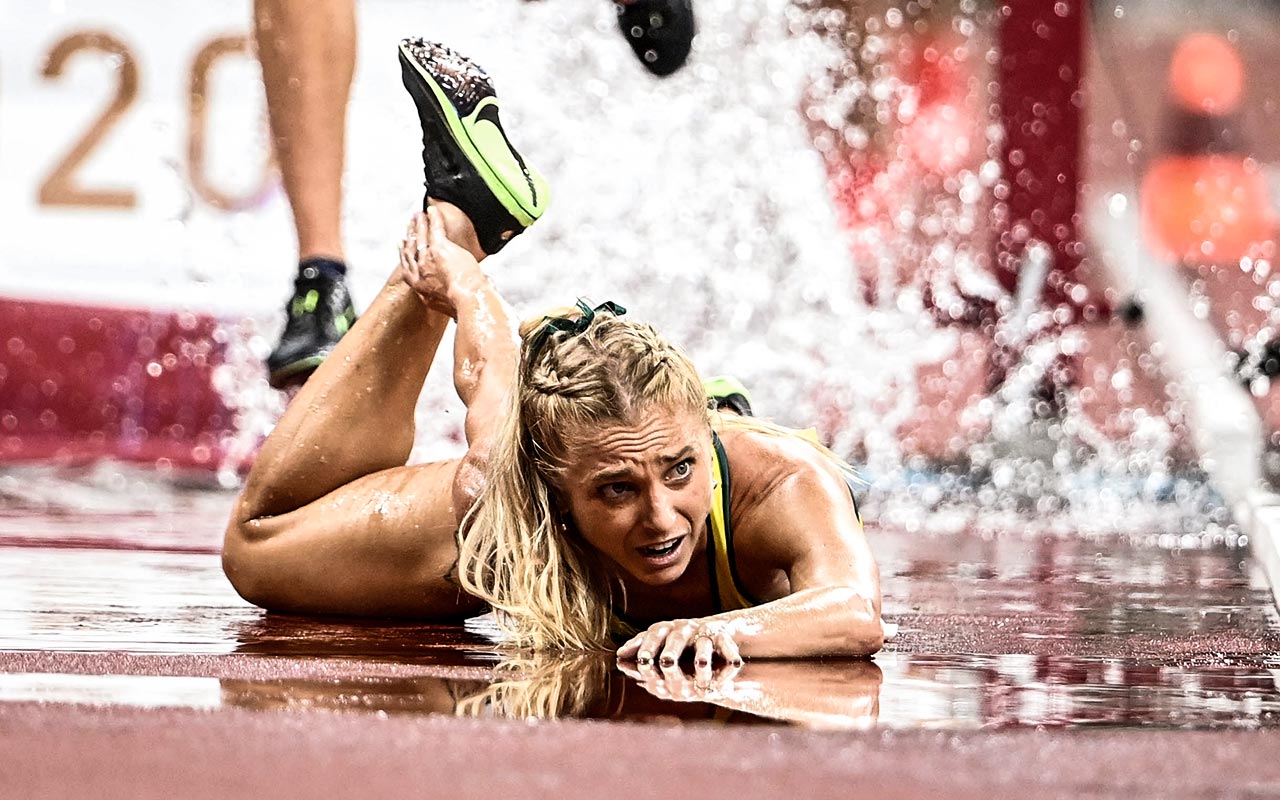
It’s exactly what you would see in every athlete’s face if they had been through that experience. It’s just pure disappointment and sadness. You think of everything you’ve done to that point and it ends with a ruptured Achilles on the biggest stage of all, an Olympic Games final.
Rupturing the Achilles tendon is such an unnatural thing to happen to the human body.
I had been told it was like being shot in heel with a gun, and now it’s happened to me, that’s the best way to describe it. It just snaps so aggressively.
It was like mine was just waiting to go on the last water barrier and it just made a really loud noise and as soon as I hit the ground the first thing I did was feel for it.
In reality I knew it wasn’t there, but I just felt to check. I knew something in my leg had snapped very hard. Part of me thought it might have been a broken bone – I’ve completely sheared my ankle in a water jump before – but the reality quickly dawned on me.
The number of things I thought about in that split second seemed to last a lifetime. The first was it’s my right leg – my strong, loyal leg that had held me together while the left gave me pain for years.
Part of me was thinking ‘just get up and get to the end’. I didn’t want that DNF. I was telling myself ‘at least finish so that you have a result’.
Then it was clear that my Achilles was ruptured. I was thinking I can crawl, but I can’t hop because my left one was in too much pain too.
Then I thought this is the Olympic final and I may never get this opportunity ever again and it’s gone just in a split second. So many thoughts all scrambled together.
My husband Ryan was one of my early thoughts. He was in London but working crazy time zones for SEN in Melbourne, doing pre- and post-race comments.
He saw what the rest of Australia did. A camera up the straight and an empty space I should have been running into, but wasn’t.
As soon as Bruce McAveny and Tamsin Manou said ‘we can’t seem to see Genevieve, she’s not coming around’ Ryan knew it was serious. They said I might have cramp, but he knew better. He thought ‘oh no, she’s ruptured her Achilles’.
He’s been on the journey with me from start to finish and we’d shared this fear. We’d always said to each other if you go into one of these races sore you’ll bloody rupture your Achilles and soon as he heard that I was holding my calf he knew the worst had happened.
If it had been a cramp, he knew I’d be crawling to the finish.
It took a while for people to attend to get me off the track. I was calling out to people for a long time: ‘can someone move me?’ The race was still going on I had girls jumping behind me not knowing that I was laying there. I think the officials had been briefed to be mindful that once they touch an athlete they’re disqualified.
I remember distinctly when they were wheeling me off the track it was sinking in what I’d done.
There are plenty of pictures of me with my hands over my face and bawling my eyes out.
But there was no physical pain, it was all emotional.
You want to know what it feels like to rupture your Achilles? Honestly it feels like nothing.
I was crying from the thought that ‘this is massive. This is a long road back. Is it over? Do you want to keep doing this? Was that your last race?’
Rupturing your Achilles can be career ending. I even thought I could have at least ruptured the left one, which has troubled me for years, and just killed two birds with one stone and just rehab that all the way back.
It just seemed more cruel that I ruptured the one that had been my loyal foot for a decade.
I came into the Olympics with a lot of issues. My left Achilles has troubled me since the Rio Games and I haven’t run 100% pain free most of my career.
As my main lead in to Tokyo, I did meets in Stockholm and Monaco five days apart to practice a heat then final schedule. I ran really well in Monaco nearly got my Australian record and felt awesome, but I just pulled up a bit sore, which is normal. I always pull up sore after races.
I was in the mindset you are in when you’re a month out from the Olympics. It probably required a rest day but I did two easy jogs and then a long run and right at the end of my long run, I developed a little niggle in my right Achilles and I treated that very seriously.
I took a week off and in my head I thought I got on top of it. But it persisted and after managing to get in such a good place for two years I just remember thinking ‘this is so unfortunate that a week out from the Olympics I’ve got two sore feet’.
I tried to stay really positive. I thought the hardest part will be getting through the rounds and we’ll have to take anti inflammatories and cortisone to mask the pain for the final.
My fitness before the issue flared showed that I was in top eight form. But after what happened I had no chance because I was running with half the power.
I only just scraped through my heat. I should have got through really easily but I was just running with one foot really, and it wasn’t even my good one.
Any other meet I might have pulled out, but not the Olympics.
As elite athletes, you’ve always got something playing on your mind. And when you’re in a major championship, sometimes you get lost in whether you’re just a bit panicky and you’re worrying about it more than normal because it’s a major championship or is it actually more painful now than it has been in the past.
When I was in the Olympic Village, it was really sore and jogs were pretty painful. There was an imbalance I was trying to push through.
By the time the final rolled around, when I was racing, I didn’t feel any pain. People ask ‘did you sense something bad was going to happen’ and I said ‘no, you wouldn’t believe what adrenaline and a bit of caffeine does’.
I was hoping to get away with a miracle, but it never worked out that way.
‘I thought I was ready for it’
The first few days after the fall were dark.
Ryan wasn’t there and my family weren’t there. A lot of athletes, including all the girls that I roomed and trained with had left.
Except for Ryan, I wasn’t prepared to talk to even my family. I texted everyone, but I didn’t want to speak to anyone on the phone, I just wanted time to think about what it meant.
View this post on Instagram
I had the team doctors and my physio come and sit with me most days and I was asking them medical questions. And I was using those next few days to cry if I needed to cry.
Two days after the race I was wheeled out to do an interview at the stadium on Channel Seven.
I thought I was ready for it. I’ve had to do plenty of public things that have seemed scary for me – like in 2012 when I made the team in a very controversial way and I had to face a media a lot with no preparation, and when I jumped on stage with Kylie Minogue at the Commonwealth Games and had to explain myself.
There’s been many situations where I’ve been thrown into an interview live and I always just think I’m just going to say what I feel is right and hopefully that’s good enough.
My instincts just kicked in when they asked for an interview and I just thought ‘yeah, of course, it’s very normal. I’m happy to do an interview’.
But when I stood in front of the camera, I realised I wasn’t ready to speak. I hadn’t spoken to anyone other than Ryan and it was too soon and too raw.
The question that hit the hardest was ‘what’s next?’ Even though I’ve thought about it so many times I found it hard to describe where I go from here.
Thankfully the interview didn’t go live to air but was shown about 20 minutes later. I didn’t realise that at the time so I texted my family and said ‘oh gosh, I’m sorry about that guys, but I was not ready for that’.
No one knew what I was talking about. When they saw it they all said it was horrible to watch. I hadn’t spoken to them on the phone so that first time my loved one were watching me speak live.
‘Hungry and driven’
What’s next?’. I told the interviewer that I was thinking about returning as a marathon runner.
Four months down the line, that’s what has me working so hard.
I don’t like that my Olympic final and potentially the rest of my career, was taken away without me choosing it to stop.
I always thought that one day I would just decide to hang up the shoes and know that I wasn’t competitive anymore. But the thought that something freakish happened and that is the reason I had to stop doesn’t sit well with me.
I’m undefeated on the roads in Australia over the last two years. Maybe this was what I needed, a really abrupt end to my track career – a sliding doors moment where I now move on to the roads and start again, and hopefully have some success.
I’m progressing. I feel normal in my right leg but my left is still the issue and I’ll get that operated on in January. We’re going to shave down the bone and just make sure that the tendons are ready to go.
View this post on Instagram
I set a timeline of running in some sort of race by the end of 2022 but the way I’m going I truly believe I’ll do the road season next year.
I won’t be doing a marathon next year but I’ll start building up the kays and do some 5km and 10km races on the road and see how my body handles it.
I’m hungry, and driven and I do love running.
I know I’ve given myself a massive challenge – I’ve never run a marathon and I want to compete in it at the Paris Olympics in three years time – and it’s an event with no guarantees.
Some people have an amazing debut and it might take them one or two more to hit their peak. Others like Jess Trengove, have a breakthrough on their, 12th or 13th marathon.
I feel women are really lucky in the marathon.
I think it is harder for men as they get older, there’s always some new young star coming up. But women have proven to get better as they get older in aerobic events.
I don’t have to look far for inspiration, having trained with Tokyo marathoner Sinead Diver for years.
It worries me that I’ve got to be able to handle the sessions I’ve seen her do but if I can get anywhere near what she’s done, it makes me feel like I’ll be competitive.
I’m not going in blind, I’m well aware of the work she puts in and what it requires.
I’d rather end on my terms. It might not work. There could be a lot of complications along the way: I don’t run the same, I get too old.
I’m aware of all those pitfalls. But I’d rather die trying it than just say my time’s up because I ruptured my Achilles in 2021.
More about: Injuries | Resilience | Tokyo 2020
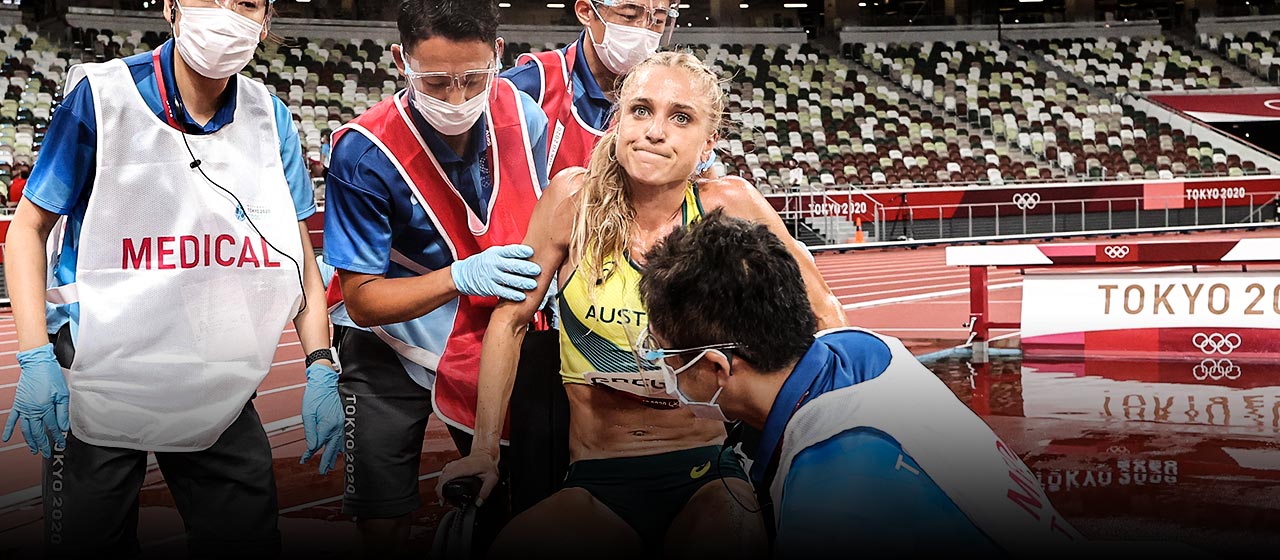

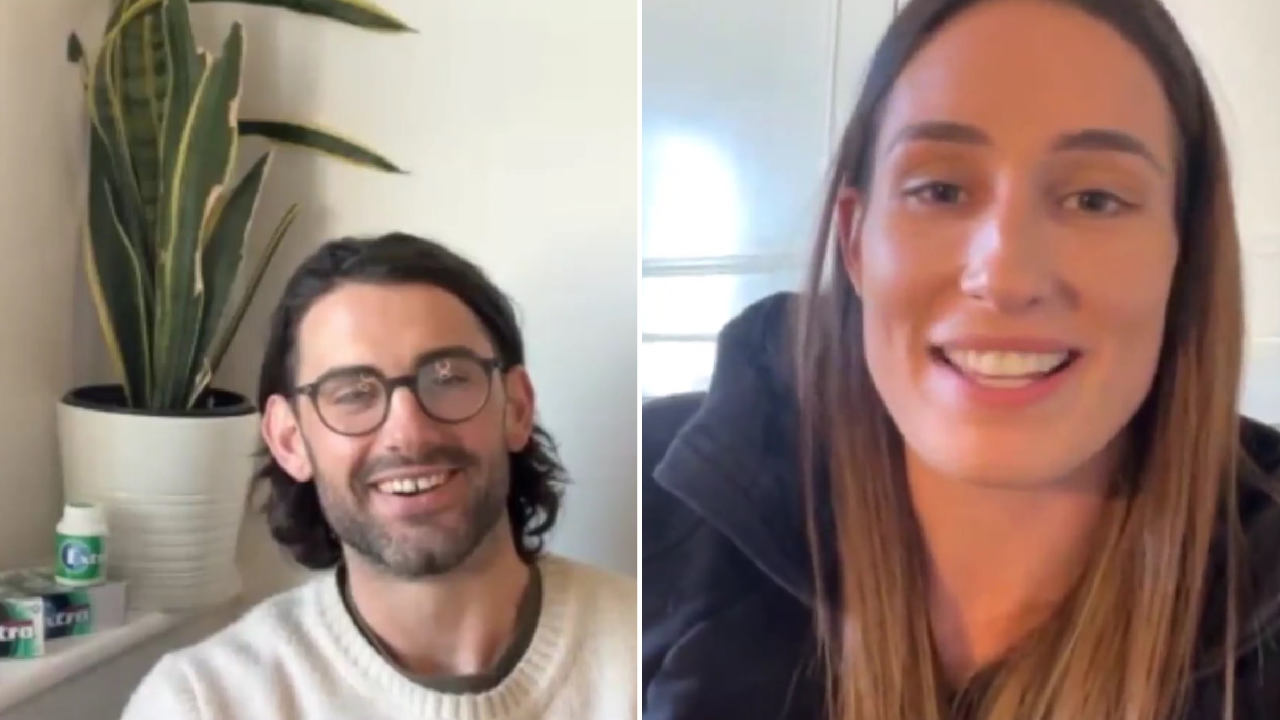
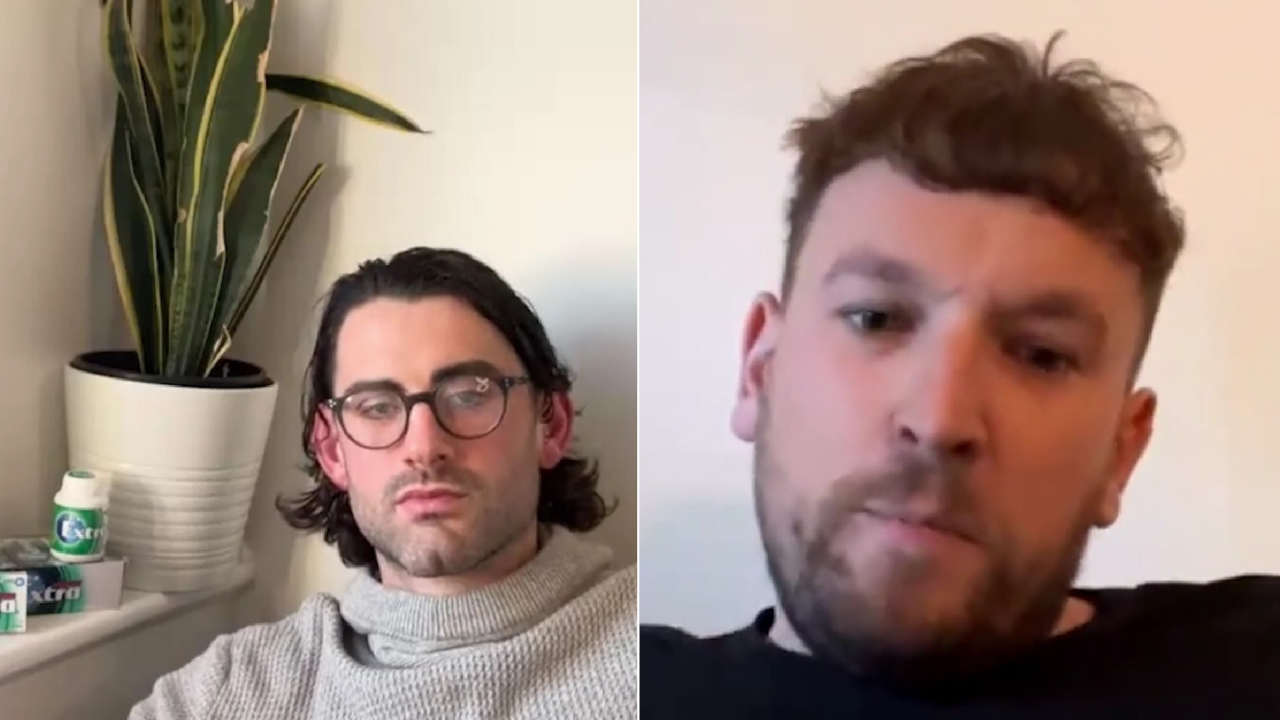

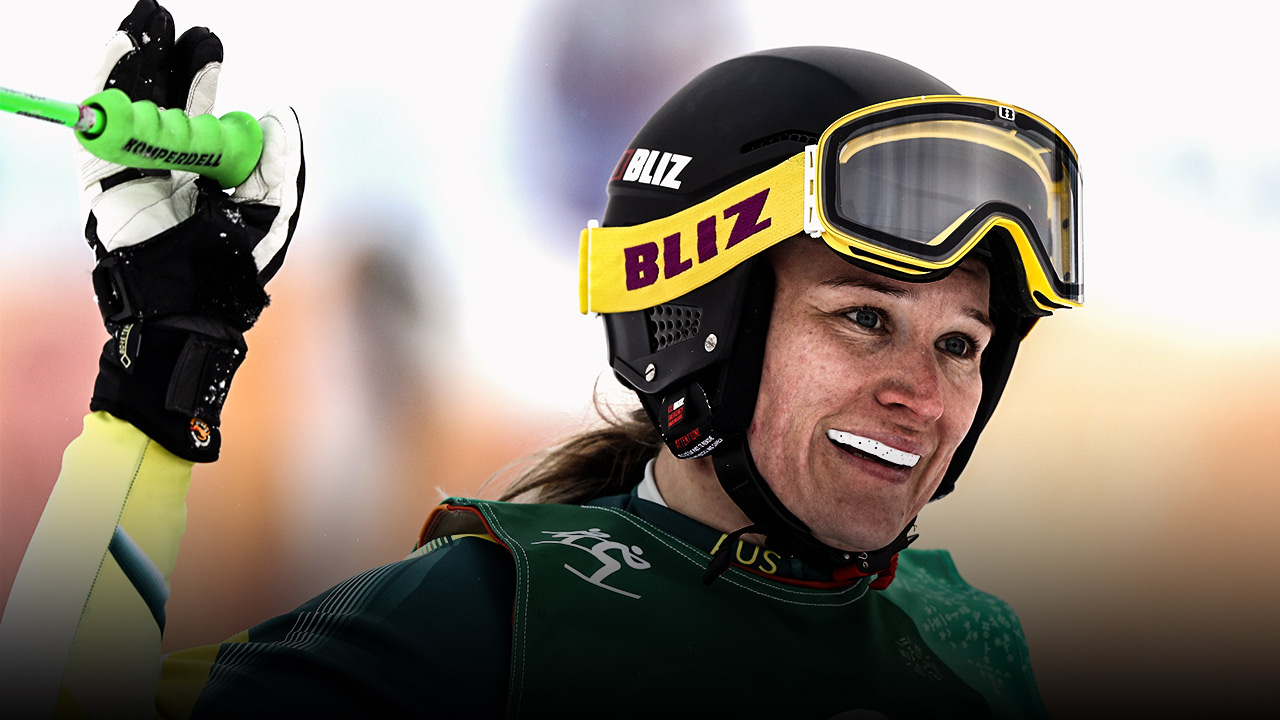
 Load More
Load More